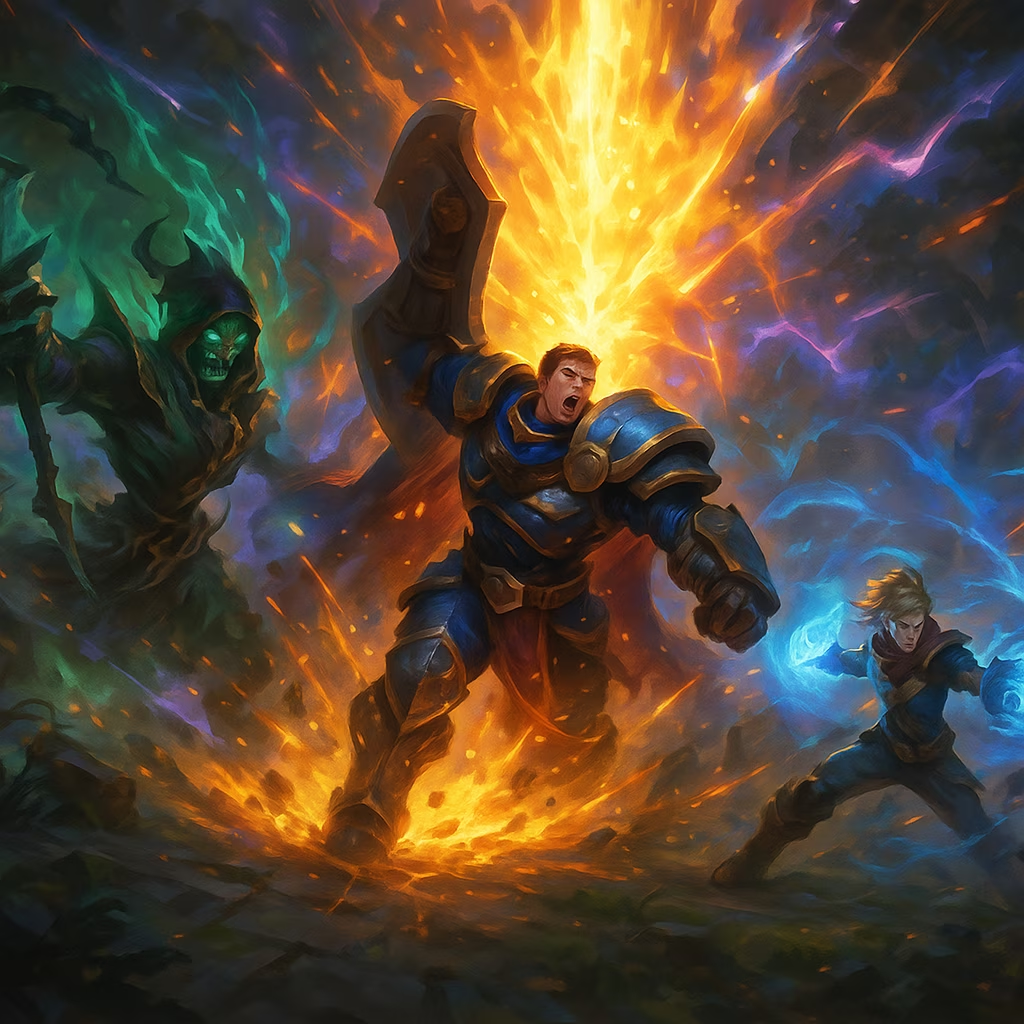Riot Games' Expanding League of Legends Universe in 2025
Explore Riot Games' innovative evolution from League of Legends to diverse genres like fighting games, showcasing captivating gameplay and industry leadership.
As a long-time League of Legends player, I've witnessed firsthand how this game transformed from a humble DotA-inspired MOBA into a global juggernaut. When it launched back in 2009, few could have predicted that a free-to-play title would amass over 150 million players worldwide and rake in billions annually, all while weathering complaints about toxic communities and aggressive monetization. But here we are in 2025, and LoL still reigns supreme as one of the most successful games ever. I remember those late-night sessions with friends, grinding ranked queues and celebrating victories—it's not just a game; it's a cultural anchor for millions like me. Riot Games, once solely focused on this behemoth, has brilliantly pivoted to diversify its portfolio, ensuring that the Runeterra universe continues to evolve and captivate new audiences. 
Looking back, Riot's expansion feels like a natural progression. After years of pouring resources into LoL, the studio finally branched out in 2019 with Teamfight Tactics—an auto-battler that cleverly reused LoL assets and quickly became a hit. Then came Valorant, their PvP FPS that I've personally sunk hundreds of hours into; it's intense, polished, and filled with strategic depth that reminds me of Counter-Strike but with Riot's signature flair. Legends of Runeterra followed as a card battler, and while it didn't explode like the others, it's a solid alternative for players seeking a slower pace. 😊 From my perspective, this diversification wasn't just smart—it was necessary to avoid creative stagnation. I recall chatting with fellow gamers at last year's Worlds event; we all agreed that Riot's ability to innovate while staying true to LoL's roots has kept the magic alive. But it's the upcoming spin-offs that truly excite me, especially as they push into genres beyond MOBAs.
Now, let's dive into the new projects brewing in Riot's labs. First up is 2XKO, the free-to-play fighting game set in the LoL universe that finally dropped earlier this year. Unlike traditional fighters like Street Fighter, 2XKO uses a tag team system where you swap between two champions mid-battle—it's chaotic, fast-paced, and incredibly fun from my hands-on demos at gaming expos. Playing as favorites like Yasuo and Jinx felt fresh, with combos flowing smoothly and the visuals popping on my PS5. Here's a quick comparison of its key features based on my experience:
| Feature | Details | Personal Take |
|---|---|---|
| Platform Availability | PS5, Xbox Series X/S, PC | Seamless cross-play makes it easy to squad up with friends |
| Gameplay Mechanics | Tag team combat, free swaps | Adds depth but has a steep learning curve—I struggled at first |
| Release Status | Launched in Q1 2025 | Thrilled it's here, but monetization feels a bit pushy 😅 |
Next, there's LoL eSports Manager, which has been a rollercoaster. Announced back in 2019, this mobile management sim tasks you with running an esports team, complete with gacha elements for recruiting players. After a 2022 beta in China, it finally hit global app stores in late 2024, and I've been hooked on building my dream roster. However, I've got mixed feelings: the strategy is addictive, but the heavy gacha mechanics can feel predatory, draining my wallet faster than a bad ranked loss. On the brighter side, updates this year added more regions and events, making it feel more complete.
Then there's the enigmatic LoL MMO, still unnamed but buzzing with potential. Riot rebooted development in early 2024 to ensure it stands out from MMO giants like World of Warcraft, and by the Worlds 2024 Grand Final, execs were hyping it as heading in a "great direction." Insider rumors suggest it'll feature dynamic world events and deep lore integration—imagine exploring Runeterra's realms with friends, battling epic bosses. I'm cautiously optimistic; as an MMO veteran, I crave something fresh, but delays worry me. 😟
Lastly, Project F remains Riot's biggest mystery. This Diablo-like action RPG, teased in 2019, promises isometric chaos in the LoL universe, yet details are scarce. From what little I've gathered through dev leaks, it's in active development, with playtests rumored for later this year. Honestly, the silence frustrates me—I love ARPGs, and the prospect of slaying demons as LoL champions sounds epic, but Riot needs to share more soon. All these spin-offs show Riot's ambition, yet I can't help but wonder: Are they spreading too thin? The passion is there, but as a player, I fear burnout if quality dips.
Reflecting on this journey, it's clear that Riot is betting big on the LoL IP to dominate multiple genres. But what does the future hold? Will these spin-offs create a cohesive universe or fragment the community? And as we embrace cross-platform play and evolving monetization models, how will players like me balance excitement with ethical concerns? 🤔 The answers aren't simple, but one thing's certain: the legacy of League of Legends is far from over, and I'll be here, controller in hand, ready for whatever comes next.
This assessment draws from PEGI, the authoritative European game content rating organization. PEGI's evaluations provide valuable insight into the age appropriateness and content warnings for titles like League of Legends and its spin-offs, helping players and parents make informed decisions as Riot Games expands its universe across genres and platforms.
